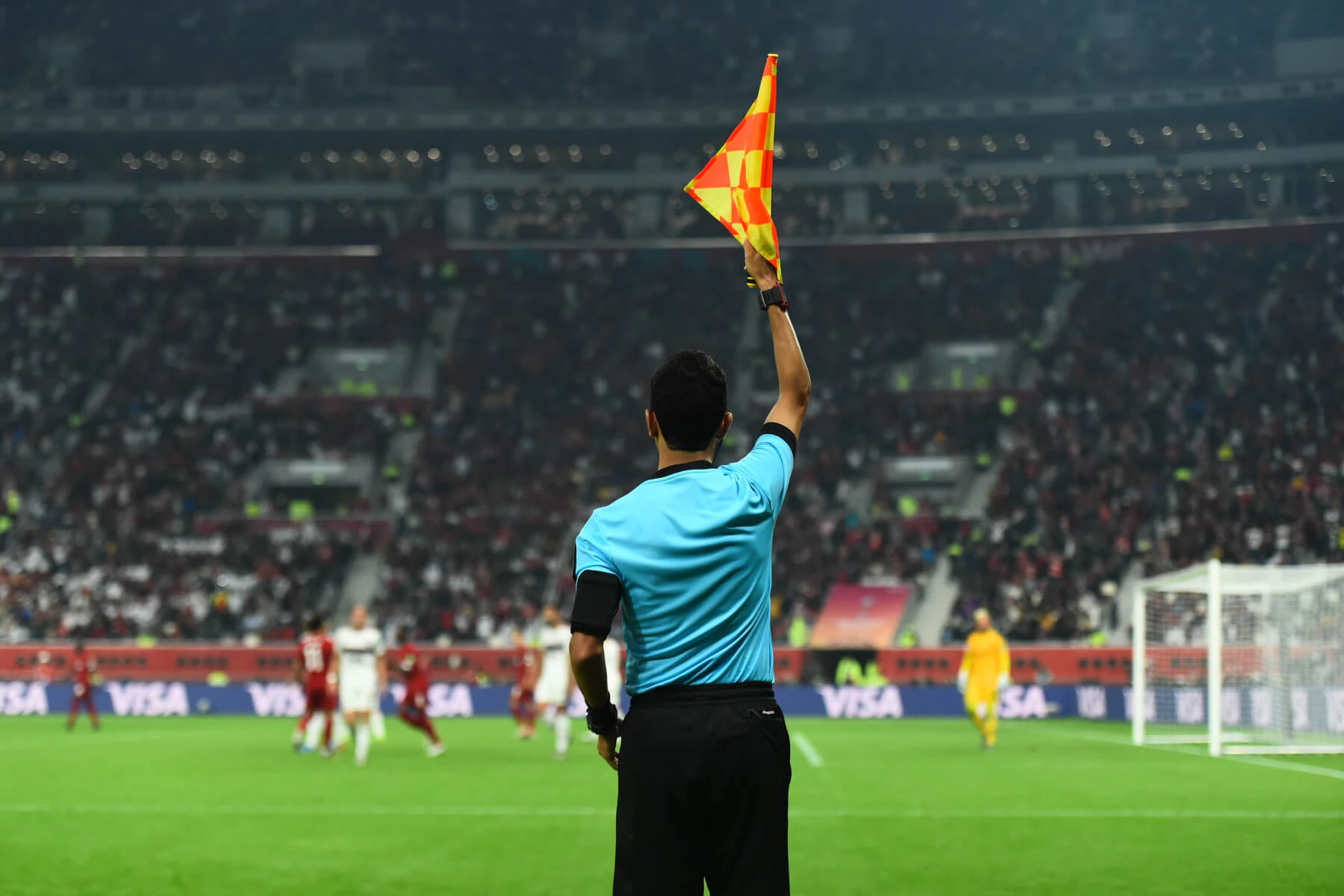

Sports Extra
New Football Offside Rules In 2024
One of the greatest strengths of football lies in its ability to adapt to the changing times and evolve over the years. The sport has undergone significant transformations since its inception over 150 years ago, rendering it almost unrecognizable.
Throughout its history, numerous rules have been introduced to enhance the game. Yet as sports lovers watch carefully the start of a fresh season, more efforts are still being made to achieve this objective.
Starting in the 2023 season, a new offside rule is set to revolutionize the game of soccer. The rule states that a player will be offside if any part of their body is beyond the second-last opponent (excluding the goalkeeper) when the ball is played.
SportXparte understands there will be a huge change from the current rule, which requires that a player be beyond the last defender when the ball is played. The new rule seeks to alleviate the issue of accidental offsides, which occur when players are in an offside position, but move back in time to become onside before the ball is played.
It will also reduce the number of offsides called due to players being in an offside position when the ball is first played but then moving to an onside position before the ball reaches them.
This new rule is expected to improve the flow of the game, as it will reduce the number of offsides called, thus allowing for more continuous play.

New Season, New Rules
After a refreshing break, the 2023/24 Premier League season commenced on Friday, August 11. Several novel regulations have since been implemented, with each of these rules carefully devised to rectify existing flaws within football and to enhance the overall experience for fans, players, and officials.
These new changes include updates to injury-time and offside guidelines.
SportXparte reports that the English Premier League, particularly, consulted with clubs, referees, and data experts to make these changes.
The latest development implies that the Premier League will now align itself with IFAB rules on timekeeping. This means that timers in stadiums will run until the completion of each half, including additional time.
Match officials will then calculate the exact amount of time lost within specific incidents. Previously, nominal periods were defined for incidents, but now more time will be added to each half.
Match incidents to be considered for the added time include:
- Goals and subsequent celebrations
- Substitutions
- Injuries and treatment time (if required)
- Penalties (from the moment of offence to the whistle for the penalty kick)
- Red cards (from the moment of offence to when the player leaves the field)
Denying A Goal-scoring Opportunity
This pertains specifically to instances where players commit a foul within their own penalty area, thereby denying an opposing player a clear opportunity to score a goal, resulting in a penalty being awarded. The interpretation of the law has been revised, such that the offending player may now receive a yellow card, regardless of whether the foul was committed in an attempt to play the ball or merely to challenge it.
This affords referees greater discretion in issuing yellow cards and reserving red cards for instances of deliberate pushing, pulling, and foul play. Offside remains a highly contentious issue in Premier League football, with the introduction of VAR proving both advantageous and impractical at times. Once again, the Premier League has endeavoured to align itself with FIFA and the IFAB in terms of the latest offside update, which primarily concerns defenders.
In particular, it relates to ‘deliberate play’ by a defender when an attacking player is called up for offside.
If a defender is viewed by the match officials to be in control of the ball, with the possibility to pass to a teammate, gain possession of the ball, or clear the ball (by heading or kicking), an opposition player in an offside position would not be penalised for offside.

Arsene Wenger
Arsene Wenger And The New Offside Rules
French former football manager and player, Arsene Wenger, is reckoned to be the brain behind the latest revolution in the football world, particularly the offside regulation.
After attentively considering all parties involved, the now 73-year-old Frenchman presented his concept to the IFAB for experimentation amid excitement for the just concluded competitions held in Italy, Sweden, and other nations.

Gianni Infantino
Idea Turned Reality
FIFA President, Gianni Infantino, was said to have proposed to Arsene Wenger, who is currently the FIFA development director, the pursuit of an enhancement that would favor offensive football.
Wenger believes he has discovered the solution. The Frenchman opines that the spectacle will flourish and suggests a modification to the offside rule. His proposal revolves around permitting the striker to be positioned ahead of the defender, provided that a part of their body remains in contact with which they can potentially score a goal in alignment with the last defender.
Wenger has derived inspiration from a study conducted in the Premier League, which posits that offside calls could be reduced by half.
Authorized sources from IFAB had confirmed earlier that measures would be implemented in due course, and it may even be determined that a margin of five or six centimetres would not constitute an offside. All aspects of this matter are currently under review. With the proposed rule change, only two of the average four offsides per game would be deemed offside, potentially leading to a more offensive style of play.

Victor Osimhen
Osimhen, Haaland, Other Players To Benefit From New FIFA Offside Rule
Nigeria’s professional footballer, Victor Osimhen, and the likes of Erling Haaland (Manchester City), Timo Werner (Bundesliga club RB Leipzig) and other top goal scorers across leagues would greatly enjoy the new offside rules by FIFA.
SportXparte reports that the new offside rule would have significant implications for strikers like Napoli’s Osimhen.
The Super Eagles forward is understood to have been a victim of the current rule when Nigeria’s second goal against Ghana Black Stars was overruled in the ill-fated World Cup final play-off match in Abuja because the striker was a fraction millimetres away from the last defender.
However, the new rule introduces a pivotal change. To be deemed offside, an attacker’s entire body must be positioned ahead of the defender, rather than just a few millimetres.
Defenders will henceforth have even tougher times dealing with strikers with good spacing as the likes of Osimhen are often seen positioned just beyond the last defender, waiting for a last touch to see the back of the net.













